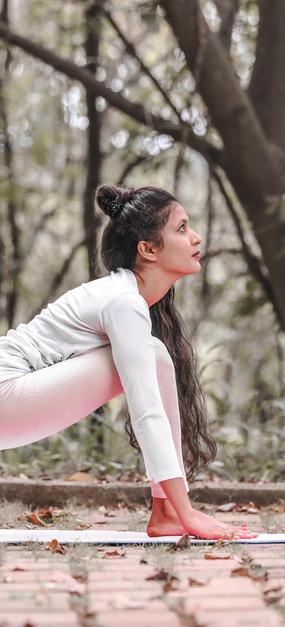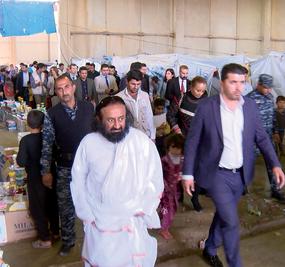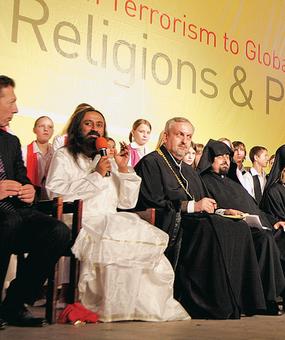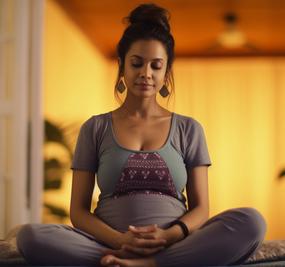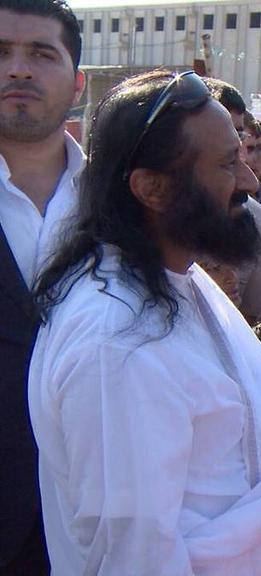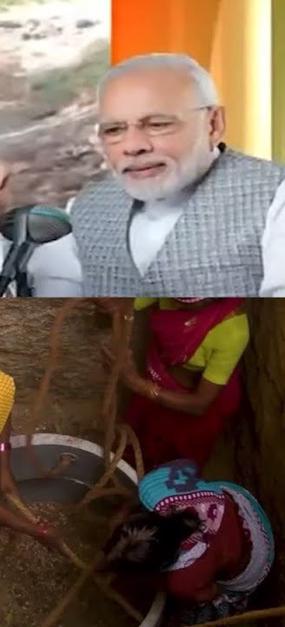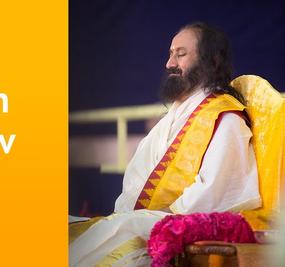Losing her father at a young age, getting married at 18 and a divorce at 23, Iman Mutlaq from Jordan has faced many challenges in her life. But nothing deters her from walking her path – empowering women and serving communities with an undying spirit and a smile. A successful entrepreneur, a mother of two boys, and a bold voice for women empowerment, in talk with this inspirational daughter of the East.
Who has been your inspiration?
My inspiration is Gurudev Sri Sri Ravi Shankar because he is the one who told me that whenever you serve others, you’ll feel more blessed and joyous in your life. And because of his guidance, I’ve started working for many communities.
How has the journey been for you?
I began working since I was 15 years of age and I was thus, independent at a very young age. My father passed away when I was six-years-old. He had already taught me that there’s nothing that one can’t do and achieve. I achieved success and money and was happy, or at least, I thought I was. But dissatisfaction still lingered. Around 10 years ago, I met Gurudev and began realizing that there is a lot of more in this world and other communities I know nothing about. I remember the first day I went to The Art of Living course and our teacher, a German lady named Eva, asked us to tell each other, ‘I belong to you.’ I started laughing and thought that she’d lost her mind. But that was the key because all my life I never felt like I belonged to anyone. And in The Art of Living, I have found a huge family of over 365 million people. Every time I enter The Art of Living international center, I feel like I’m back at home. And it’s worth more than any 5-star hotel. I learned a lot from the program. I learned to let go and deal with stress and everyday challenges. I learned commitment and self-discipline. And, I learned how to be happy like a newborn baby.
You’ve been working to empower women. What makes you want to work in this area?
I grew up in Saudi Arabia and saw the double standards towards women. I appreciate that men and women complement and complete each other. But I also feel that women can do whatever men can do and it is important to teach them that, especially in cultures where they are told to stay at home. Women who’ve been divorced or widowed have no one to take care of them and are not living lives they deserve. I firmly believe that if you empower a man, you only empower a single person. But if you empower a woman, you empower an entire community. So, I started to empower other women, especially in the places where they need support.
Did moving from one society to another propel an identity change for you? And did it change your perspective on women empowerment?
There is a cultural difference in the places where I’ve lived. From Jordan to Egypt to Emirates to Saudi Arabia, I learned a lot from each country. The challenges and lessons in these countries have made me who I am today, where I can think about how I can give, support and share the knowledge from the lessons that I learned.
Was your father a big influence on your perception towards the society when you grew up?
Not really. But certain memories and things he taught me gave me strength throughout. When I was little, my dad used to tell me ‘you can’ and there is no difference between men and women. I still remember when I was six years old, and before my dad passed away, we went to a Ferrari car agent. Once there, I kept jumping and running with my friends, excitedly pointing at a car and shouting that this was my car. The boys said, “You are a girl and you cannot drive this car.” (Women in Saudi Arabia are not allowed to drive a car and can only sit next to the driver). My father looked at me and said, “My dear, you can and you will one day have any car you want.” The look that he had in his eyes gave me energy. Unfortunately, my father passed away when I was just six and I didn’t have brothers or uncles in the family. Also, I got divorced quite young. But, I have my sons and I’ve taught them that there is equality between men and women and that we all come from the same source and, therefore, are equal.
How important is a family’s role in a woman’s journey to empowerment? Could you share some of your experiences?
Family is very important because you get to learn a lot from them. I learned a lot from my mother who was a typical Arab woman. She believed that women cannot do anything without men. She wanted me to get married and stay home. It was a challenge for me to prove to her that I could be whatever I wanted to be and didn’t have to wait for a man in my life. This was a really positive challenge for me because every time she’d stop from doing something, I would go ahead and do it. If she would tell me that you cannot go climb a mountain because only men do that, I would go and climb a mountain. It’s all about how you are educated.
I am also the President of the International Association for Human Values (IAHV), Jordan, and had been to Iraq to empower and support around 100 women through a project. Essentially, this means empowering 400 families because when you empower a woman, you empower her entire family. In Iraq, salaries and positions for women were very low. I wanted to help them, especially the ones in the banking sector, where some departments are not open to women. So, I got in touch with professors from the Jordan University and we paid them to go to Iraq and empower these women. We approached the banks and asked them to let us educate the women working there. Simultaneously, we signed a Memorandum of Understanding with the bank stating that once these women get certificates and diplomas, they would get higher positions and salaries. Some banks resisted and disapproved of our request saying if women were educated, then they would not want to stay at home anymore. This was a challenge, but we persisted. Soon we got 400 women to participate.
What is your understanding of soft skills in the workplace?
Soft skills are the inner knowledge and understanding of what life is about. It makes you more understanding and accepting of people and situations, living in the present moment while knowing your goals and direction. It is about leaving a legacy everywhere you go and in everything you do.
What according to you are the main challenges of the Middle-East? What are the solutions that can bring peace to the region?
Most challenging things in MENA (Middle-East and North Africa) region now is the conflict of religious opinions which leads to war.
You are an icon for women. What have been your learnings?
Every day brings a new learning. Every challenge brings out the skills that you possess. I learned that only by focusing on the fact that we can achieve what we want, and by practice, we gain skills and can further improve them.
In your role as the director of the International Association for Human Values in the Middle East, you’re driving an approach for women empowerment. How do you see it transforming the society in Middle-East?
It is working well as we maintain a connection with every woman we empower and encourage her to be strong. We started the process and they are continuing it by empowering others around them. It is getting better and better.
What are your future plans?
I plan to travel to Afghanistan and Indonesia to empower women there, and then to Nepal to help in the construction of the much-needed housing after the massive earthquakes.




